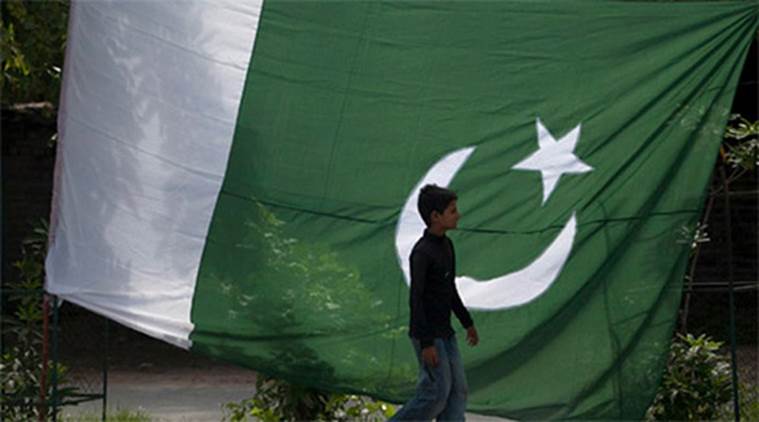- India
- International
To put terror lens on Pakistan, US nudged Saudi, cut China deal
Being on the FATF’s watchlist means Pakistan can be placed in either the “black list” or the “grey list” of countries with strategic deficiencies posing a risk to the international financial system.
 As of now, Pakistan does not feature on the FATF’s updated grey list, which was issued on Friday along with the FATF statement. (Representational photo)
As of now, Pakistan does not feature on the FATF’s updated grey list, which was issued on Friday along with the FATF statement. (Representational photo)
Pakistan found itself on the watchlist of the global terror financing watchdog on Friday evening after a dramatic volte face by two of its three principal backers. After the United States negotiated with China, and got Saudi Arabia to lean on the Gulf Cooperation Council (GCC) on Thursday, only Turkey was left standing with Pakistan as the plenary meeting of the Financial Action Task Force (FATF) ended in Paris.
Being on the FATF’s watchlist means Pakistan can be placed in either the “black list” or the “grey list” of countries with strategic deficiencies posing a risk to the international financial system. The FATF is an intergovernmental organisation founded at the initiative of the Group of 7 to establish standards for the effective implementation of legal, regulatory and operational measures to combat threats such as money laundering and terror financing.
As of now, Pakistan does not feature on the FATF’s updated grey list, which was issued on Friday along with the FATF statement. The grey list is a list of “jurisdictions with strategic anti-money laundering/countering the financing of terrorism deficiencies for which they have developed an action plan with the FATF”.
Pakistan has not yet “developed an action plan with the FATF”, which, as per existing FATF norms, is developed only after the FATF has carried out a “Mutual Evaluation”, or in-depth study of the financial system of the country.
Following the completion of an earlier process of Mutual Evaluation, Pakistan was put on the grey list in 2012, to follow the action plan suggested by FATF. In 2015, it was taken off the grey list, after the FATF was satisfied that it had done enough to counter terror financing. The next Mutual Evaluation starts in April, which is expected to take at least 18 months of study, followed by another 12 months of analysis. An Action Plan for overcoming “strategic deficiencies” would be suggested at the end of Mutual Evaluation.

However, in the absence of a latest Mutual Evaluation report for Pakistan, the US, along with the UK, France and Germany, started an unprecedented process at the FATF meeting in Paris. They co-sponsored a motion to nominate Pakistan as a country having “strategic deficiencies” in “countering financing of terrorism”.
This motion was passed on Thursday — and Pakistan is now required to submit an Action Plan to FATF in May. Once the FATF approves the Action Plan in June, it will make a formal announcement about placing Pakistan on the grey list. Should Islamabad fail to submit an Action Plan, or if the FATF does not accept it, the global watchdog will have the option of placing Pakistan on its black list, along with North Korea and Iran.
Pakistan’s recent actions against Hafiz Saeed’s charities and strong diplomatic lobbying to avert grey listing was undone by some deft moves from the US in Paris. While the FATF works on consensus, a vote by at least three members is required to block a nomination in the 37-member grouping. During the preliminary discussions between Sunday and Tuesday, the US-led proposal was opposed by China, Turkey and the GCC. The GCC was following the lead of Saudi Arabia, which is an observer, and not a full voting member of the FATF.
On Wednesday, Pakistan Foreign Minister Khawaja Asif posted an update on Twitter that Pakistan had received a three-month reprieve, stating that it was “grateful to friends who helped”. This followed the US decision to not put the nomination to vote on Wednesday, the first day of the plenary session. But Asif’s premature announcement came a cropper when US officials negotiated with China and Saudi Arabia behind the scenes, bringing the two countries around to its view on Pakistan’s terror financing.
Official sources told The Indian Express that the Chinese turnaround came after the US offered it the vice-presidentship of FATF from July 1. The FATF Vice-President is also the FATF President-designate, which means that Beijing will head the terror financing and money laundering watchdog for one year starting July 2019. Sources said that the US also leaned on Saudi Arabia, which is hoping to become a full member of the FATF in June, to ask the GCC to drop its opposition to the proposal. The US and the three co-sponsors then moved the proposal on Thursday, which was opposed only by Turkey.
India, which is a full member of the FATF, supported the US proposal, but did not actively lobby for it, as the organisation is keen to keep politics out of what it considers to be “a technical process”. Sources said Islamabad’s aggressive lobbying prior to the meeting and the public announcement by its foreign minister contributed to the mood against Pakistan.
Must Read
Apr 23: Latest News
- 01
- 02
- 03
- 04
- 05




































